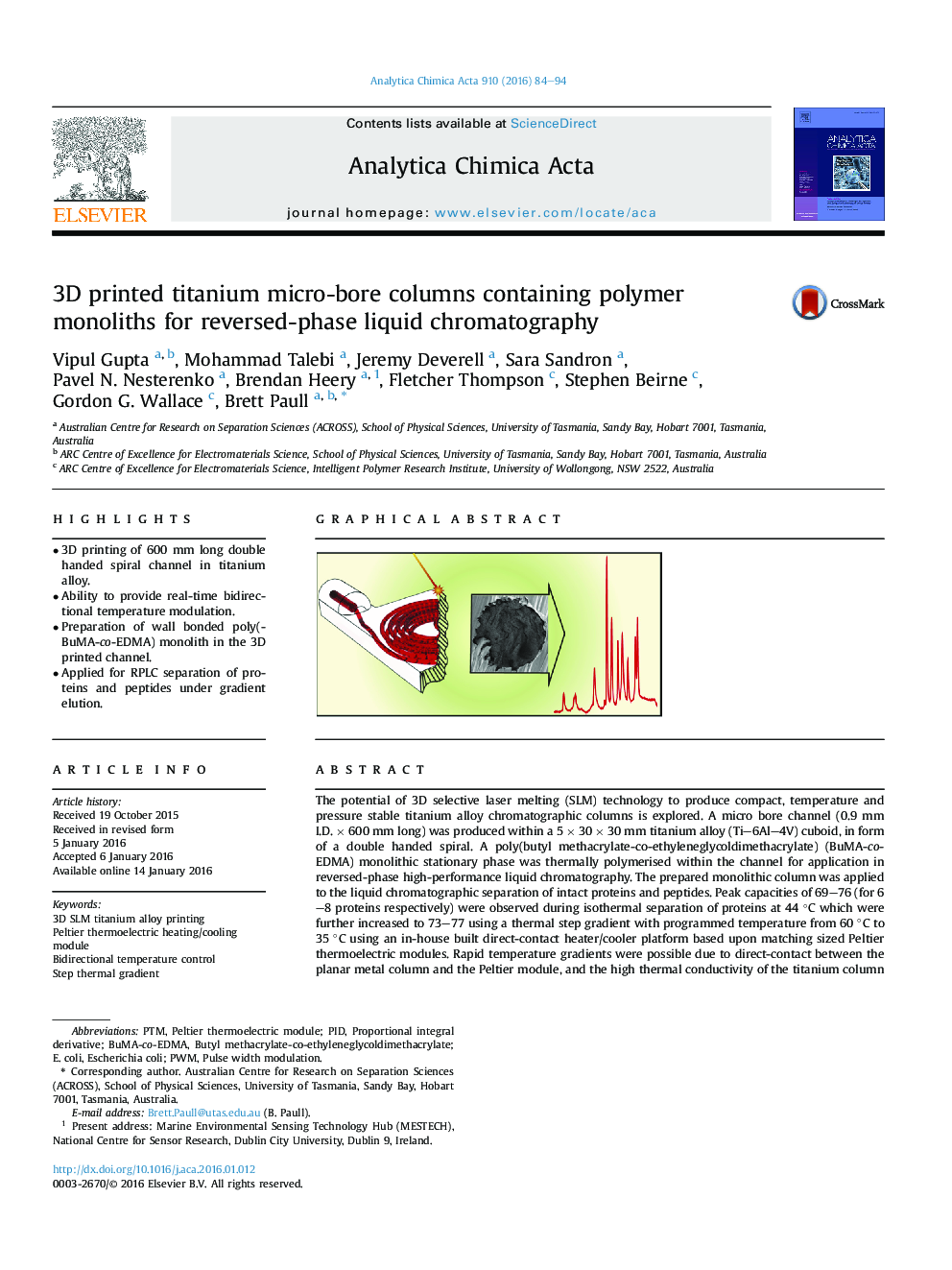| Article ID | Journal | Published Year | Pages | File Type |
|---|---|---|---|---|
| 1163079 | Analytica Chimica Acta | 2016 | 11 Pages |
•3D printing of 600 mm long double handed spiral channel in titanium alloy.•Ability to provide real-time bidirectional temperature modulation.•Preparation of wall bonded poly(BuMA-co-EDMA) monolith in the 3D printed channel.•Applied for RPLC separation of proteins and peptides under gradient elution.
The potential of 3D selective laser melting (SLM) technology to produce compact, temperature and pressure stable titanium alloy chromatographic columns is explored. A micro bore channel (0.9 mm I.D. × 600 mm long) was produced within a 5 × 30 × 30 mm titanium alloy (Ti–6Al–4V) cuboid, in form of a double handed spiral. A poly(butyl methacrylate-co-ethyleneglycoldimethacrylate) (BuMA-co-EDMA) monolithic stationary phase was thermally polymerised within the channel for application in reversed-phase high-performance liquid chromatography. The prepared monolithic column was applied to the liquid chromatographic separation of intact proteins and peptides. Peak capacities of 69–76 (for 6–8 proteins respectively) were observed during isothermal separation of proteins at 44 °C which were further increased to 73–77 using a thermal step gradient with programmed temperature from 60 °C to 35 °C using an in-house built direct-contact heater/cooler platform based upon matching sized Peltier thermoelectric modules. Rapid temperature gradients were possible due to direct-contact between the planar metal column and the Peltier module, and the high thermal conductivity of the titanium column as compared to a similar stainless steel printed column. The separation of peptides released from a digestion of E.coli was also achieved in less than 35 min with ca. 40 distinguishable peaks at 210 nm.
Graphical abstractFigure optionsDownload full-size imageDownload as PowerPoint slide
